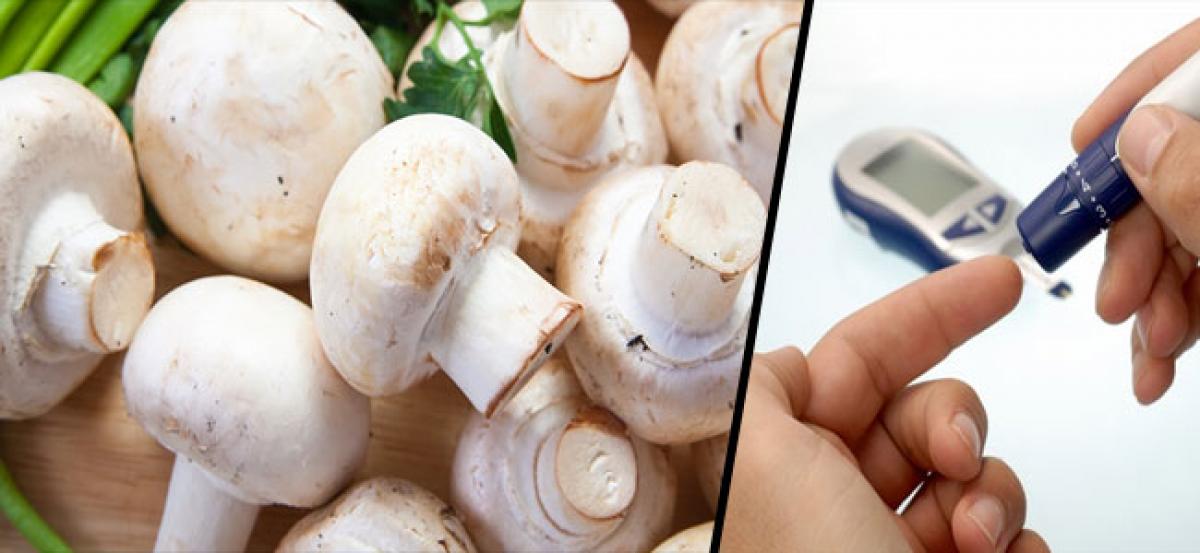Live
- Woman held for stealing gold worth Rs 12.5L
- Paddy inundated in over 2,000 acres in Palnadu dist
- IoT to play crucial role in future horticulture
- Rockwoods School celebrates Christmas with gaiety
- Kuppam Horticulture Hub shines with SKOCH Award
- Hyd’bad enjoys cool showers amidst X’mas festivities
- Hyderabad: City aglow with X’mas spirit
- Reliance CEO donates Rs. 1.11 cr to TTD
- Governor pays tributes to Vajpayee
- TTD to issue tokens for Vaikunta Dwara Darshan from January 9
Just In

Eating white button mushrooms may improve the regulation of glucose in the liver, according to a study which could pave the way for new diabetes treatments and prevention strategies
Washington: Eating white button mushrooms may improve the regulation of glucose in the liver, according to a study which could pave the way for new diabetes treatments and prevention strategies.
Feeding white button mushrooms to mice changed the composition of gut microbes - microbiota - to produce more short chain fatty acids, specifically propionate from succinate, according to Margherita T Cantorna, a professor at Pennsylvania State University in the US. Previous research has shown that succinate and propionate can change the expression of genes needed to manage glucose production, she said. "Managing glucose better has implications for diabetes, as well as other metabolic diseases," said Cantorna.
Normally glucose is provided from the food people eat. Insulin moves glucose out of the blood and into the cells. Diabetes occurs when either there is not enough insulin or the insulin that is made is not effective, resulting in high blood glucose levels. Diabetes and pre-diabetes contribute to severe life threatening diseases including heart disease and stroke. The study, published in the Journal of Functional Foods, used two types of mice in the study. One group of mice had microbiota, the other group did not have microbiota and were germ-free mice.
"You can compare the mice with the microbiota with the germ-free mice to get an idea of the contributions of the microbiota," said Cantorna. "There were big differences in the kinds of metabolites we found in the gastrointestinal tract, as well as in the liver and serum, of the animals fed mushrooms that had microbiota than the ones that did not," Cantorna said. The researchers fed the mice about a daily serving size of the mushrooms. For humans, a daily serving size would be about three ounces.
Consuming the mushrooms can set off a chain reaction among the gut bacteria, expanding the population of Prevotella, a bacteria that produces propionate and succinate, said Cantorna. These acids can change the expression of genes that are key to the pathway between the brain and the gut that helps manage the production of glucose, or gluconeogenesis. According to the researchers, the mushrooms, in this case, serve as a prebiotic, which is a substance that feeds beneficial bacteria that are already existing in the gut.

© 2024 Hyderabad Media House Limited/The Hans India. All rights reserved. Powered by hocalwire.com







